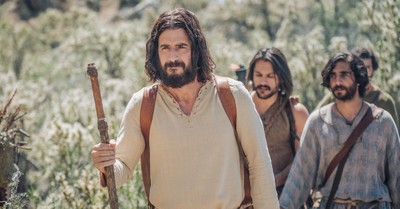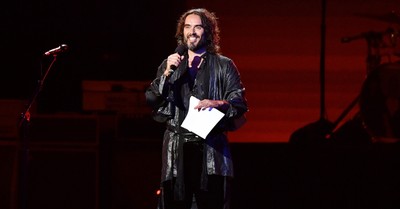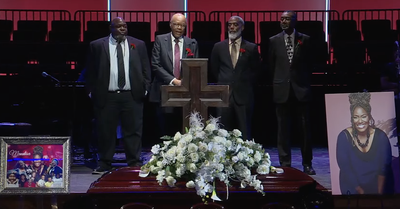Editor’s Note: This is the second in a series of articles detailing Janet Chismar’s Dec. 8-12 visit to Haiti with the leaders of New Directions International, a missions and relief organization based in Graham, N.C.
As the witchdoctor staggered out of a back room with his zipper down, spilling moonshine, I found it hard to take the figure with glassy, red eyes seriously. He seemed little more than a street corner drunk. But soon I realized this was no laughing matter. Scattered throughout the Voodoo temple were a handful of toddlers, several teens and a couple of concubines – each held spellbound by this man’s “power.”
He poured a capful of his potent alcohol for a thirsty tot and plopped down into a chair. The young ladies in the compound seemed to compete for a shed of his leering attention. Children covered their faces in fear when the spirit “Lesly” invaded his convulsing body.
“I can make someone fall in love with you,” he promised in slurred Creole. Looking for a promotion? Want to win the lottery? It’s as simple as buying a spirit – for the low, low price of $5,000 to 25,000 U.S. dollars – depending on how much power you want, of course.
For anyone reluctant to believe in the Lord Jesus Christ, the promises of voodoo would seem appealing – especially in a nation devastated by poverty, famine and disease.
By some counts, an estimated 75 percent of Haitians actively practice Voodoo, a melding of West African spiritism and witchcraft. "One common saying is that Haitians are 70 percent Catholic, 30 percent Protestant and 100 percent voodoo," says Lynne Warberg, a National Geographic photographer who has documented Haitian voodoo for more than a decade.
Perhaps the most disturbing aspect of this ancient practice is the commingling of demonic ideology and Christian terminology. Bible in one and voodoo handbook in the other, “Lesly” explained to us that there is “no difference between the work of witchcraft and the work of evangelism.” He believes God sent him as a saint to earth to “help people.” If someone dies an unnatural death, Lesly can raise him from the dead. “But the power I have is from God. I take my pleasure in God’s word – it is great and huge.”
Hope for the Future
Against this backdrop of darkness and confusion, Haitian pastors and international ministries are making great strides in the name of Christ. The evangelical church, by some estimates, now makes up 40 – 50 percent of the Haitian population.
Even in the early days of the largely Catholic nation, Protestant Christians made their presence felt. According to the Library of Congress Country Studies, by the mid-19th century, small numbers of Protestant missionaries – principally Baptist, Methodist and Episcopalian – served the Haitians. Almost half of Haiti's Protestants were Baptists; Pentecostals were the second largest group. Many other denominations also were present, including Seventh Day Adventists and Presbyterians. In the late 1950s, about 20 percent of the population identified itself as Protestant.
In 2004, the evangelical Christians in Haiti are working to reclaim the entire nation for Christ. Haiti for the Third Century, or HAVIDEC, is a group of Haitian Christians led by Pastor Chavannes Jeune. In partnership with Christians around the world, including New Directions International (NDI), they planned a series of events at the beginning of 2004 to “take Haiti back from the devil, and dedicate her to Jesus Christ.”
An estimated 15,000 people attended the closing event in Port-au-Prince on January 4, 2004. The events concluded with the signing of a new “Declaration of Independence” which declared freedom from the curses of voodoo.
And now, at the conclusion of the Bicentennial year, Haitian pastors and NDI once more joined forces to pray for God’s blessing. (See yesterday’s Religion Today article for more about Haiti at the Cross .)
HAVIDEC’s strategy involves a five-phase plan of action with the ultimate goal being “nothing short of breaking the bondage of voodoo, poverty, ignorance, crime and corruption, and bringing in a time of peace and prosperity through the church as God’s salt and light in that society.”
Pastor Jeune told Crosswalk.com that the biggest challenge for Christians in Haiti is “how to live out our faith in the politics of violence, corruption and bad government. The church needs to stand up for moral values, for Bible teachings.”
But, adds Jeune, these very difficulties are causing the church to grow. “If there is one thing that accompanies all these difficulties, it is the growth of the church. It is a phenomenal growth. Every small church now is experiencing a rate of conversion of at least 10 people per Sunday.”
Jeune, the president of the Baptist Church of South Haiti (MEBSH), oversees 500 Baptist churches with a population of more than 130,000 people.
Yet there is more to do. Jeune says a group from HAVIDEC wants to go one step further. “We need to encourage strong Christian people to get involved in the political realm,” he explained. “For so long, we’ve been telling the people that Christians should not get involved in politics, because politics is dirty and once you get involved, you’re more likely to loose your sanctification.”
But now, says Jeune, the churches and especially the younger generation are aware that “as long as we leave the political realm for the dirty people, politics in Haiti will always be dirty.”
Jeune believes God “laid on my heart a vision to see my country free – spiritually, economically, socially and politically. I have engaged in this endeavor during the last 10 years, and I mean to keep up the work, even though it is difficult. I am praying for the Lord to send people to join me in that journey.”
Christ’s Blood for the Blood of a Pig
Another Haitian pastor, Eris Labady, oversees 15 churches around the island. He agrees that Haiti is “a sick nation” and Jesus is the remedy. He feels Haiti is suffering from “economic disease, spiritual disease, moral disease and socio-political disease.”
According to Labady, the Christians in Haiti have hope in the darkness because they know that God is their provider and sustainer. “But we are not alone. We have to think of the others in Haiti too and therefore, we suffer with them.”
Labady tends to blame Satan for the nation’s many problems. “I think it all stems back when our nation first started. I think a bad beginning can affect the rest of the story if there is no visible change in between.”
Voodoo witchdoctors in Haiti made a blood pact with the devil, known as the “Boukman sacrifice” on August 14, 1791. (Boukman was the witchdoctor who performed the sacrifice with a black pig.) After a decade of civil war, Haiti won its independence from the French, becoming the first Black Republic in the world in 1804.
But credit for Haiti’s independence is misplaced, says Labady. “Our nation, like many other nations, had to fight to get our independence. The people did not recognize that is was God’s mercy that allowed them to get it. For some reason, they got it in their mind that it was because of the help of Satan.”
Two hundred years later, the impact of voodoo “is all around us,” Labady adds. “You have a society that is divided. It is split into pieces. The Bible says that the kingdom of Satan is a divided Kingdom. Haiti is very divided today. That’s why we have a lot of violence, in the city especially.”
Fear is the main stronghold that Satan has over the Haitian people, says Labady. “When a person is afraid, they will do all they can to try to find security. There is a sense of desperation. Satan has caused them not to see the light and they don’t want to hear the truth.”
Poverty also leads to desperation, but money alone is not the answer. “Material prosperity does not bring freedom and joy,” Labady points out. “It may bring some happiness because happiness is a feeling, but joy, which is a state, does not come from those things. That’s why we can say that in spite of the misery of the unemployment, those who have gotten a grip on God, and have the hope of Jesus in their life, have joy.”
As for the rest of Haiti, Labady and his co-laborers in Christ are praying that “God will give us light and that He will unveil the eyes of the people so they are able to know where their help comes from.” Gatherings such as Haiti at the Cross are another way to hope for a new start, Labady adds. “We’re really confident that the Lord is going to give us victory.”
Coming Monday and Tuesday on the Crosswalk.com Faith page: New Directions International Changes Lives in Haiti and around the world.
And in the premiere issue of Crosswalk magazine: Ordinary Christians Make a Huge Impact in Haiti. Coming in January/February 2005!
For more information about New Directions International, and to learn how you can help, visit www.newdirections.org.
About the Photos: Top image shows two of the children inside the voodoo temple. The second image is a voodoo altar. Pastor Chavannes Jeune is depicted in the third photo. Fourth is a Haitian black pig in the voodoo temple. Last is one of the toddlers from the voodoo compound.










